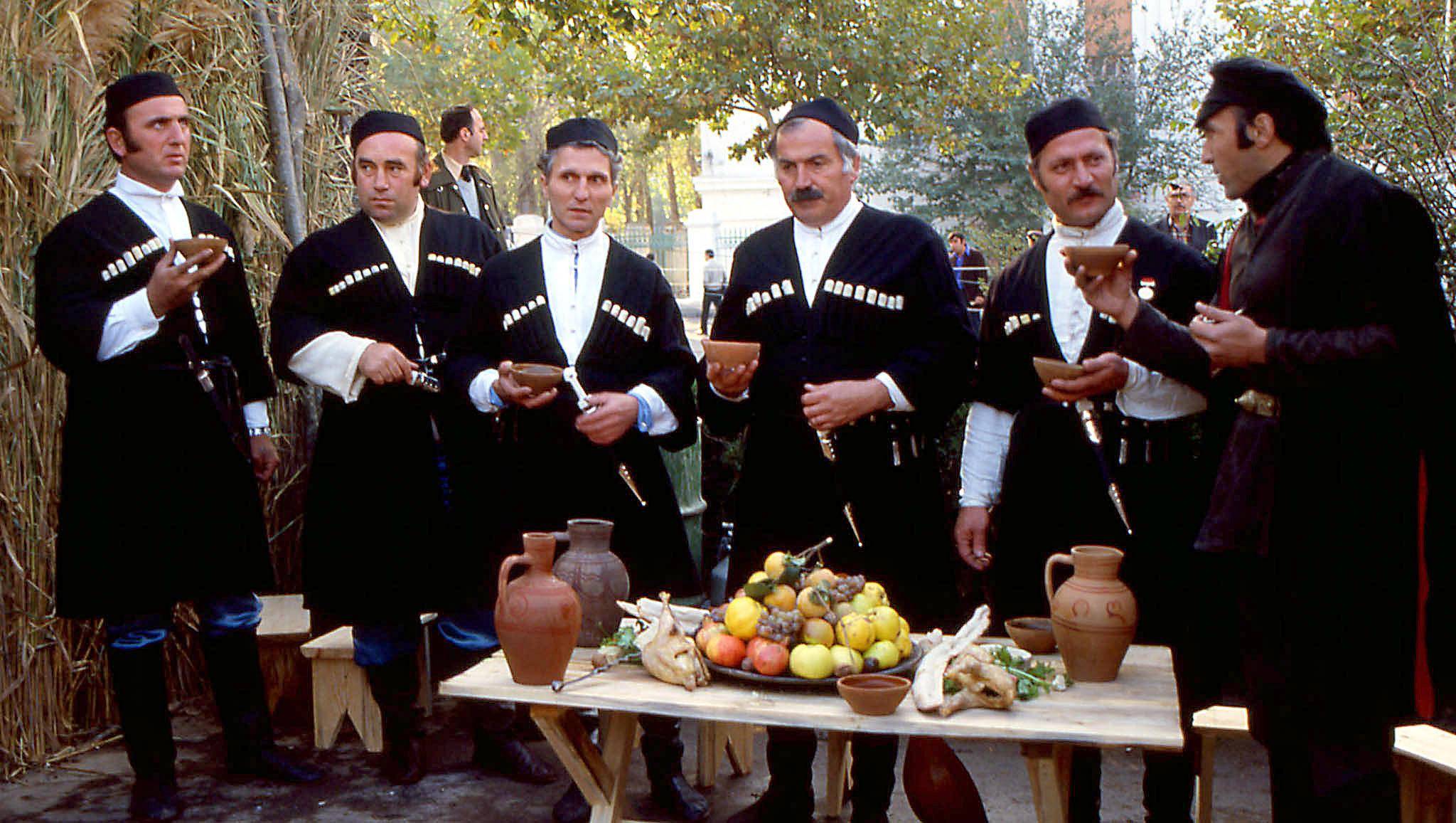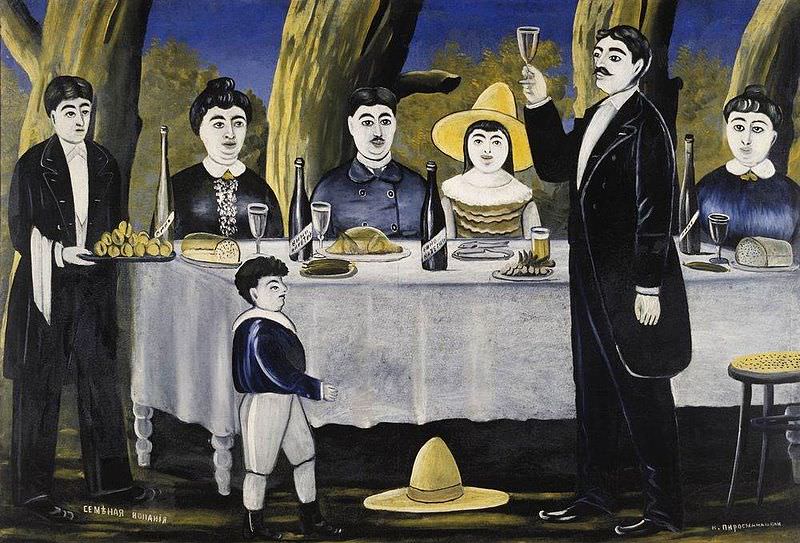"Penal", patriarch and four "CH" in Georgia
Evolution of Georgian toasting tradition
The Georgian toast culture has been quite famous for a long time. But in the last two centuries, the Georgian feast has changed.
It was supplemented with several strange and outrageous toasts, without which it can no longer be imagined.

In the 19th century, toasts in Georgia were short and to the point.
For example, if a child was born, family members and relatives raised clay bowls with wine and succinctly wished the newborn health. After that, the table conversation and the wine drinking itself proceeded without any pathos.
In the mountainous regions of Georgia, there was a tradition – toasts were pronounced in poetic form. But even these were not toasts in the form they are today.
The modern Georgian feast, including the order of toasts, is quite strictly regulated. It is believed that this tradition has developed since ancient times. However, there is no documentary or historical evidence that 200 years ago in Georgia, toasts were raised to the patriarch, neighbors or passers-by.
- The Georgian funerals of yesterday and today
- Op-ed: Shoes as drinking vessels – can bottled wine culture disappear in Georgia?
In the 19th century, along with the introduction of wine into trade (before that, wine was not traded in Georgia, it was a product of the so-called general consumption), a trend to have feasts outside of home appeared.
People began to lay tables in the forests, on the river banks, as well as in the emerging taverns and canteens. There, in addition to family members and relatives, you could have absolute strangers at the table. And, accordingly, toasts also changed.
Close relatives don’t need special explanations. But with the appearance of unfamiliar people at the feasts, the need for mutual introduction arose – of course, in a favorable light. This, plus alcohol intoxication, added verbosity and artistry to the toasts.
The very word “sadhegrdzelo” (“toast”, “toast”) in Georgian implies the phenomenon of wishing the toasted person a long, comfortable life. It was this word that in the old days, as a rule, was limited to companions, raising toasts to each other.
But in the last two centuries, the essence of toasts and their forms have changed beyond recognition.
Previously, latecomers to the feast were not fined with an additional glass. They were generally completely free from external pressure. Now it has become the rule – the toastmaster and companions raise a toast to the latecomer, and then he, too, must drink the so-called “penalty”. And only after that he becomes a full participant in the feast.

Today’s Georgian feast – memorial or festive – begins with two obligatory toasts: the mention of the Almighty (thanks are offered) and the wishes of peace (the global catastrophe that a modern war can cause is mentioned).
After that, a toast is made to the Patriarch of Georgia. This toast has generally become mandatory only in the last 10-15 years.
At the Georgian table, the deceased are also usually remembered several times.
To children, a toast may be raised in a somewhat joking manner, for example:
“To children whom we wish to be beautiful, rich and have all the best. So that they now have a lot of chocolate, and when they grow up, with the help of the Almighty – chocolate factories!”

After a toast to the children, a toast to a united Georgia is usually raised. This toast is often accompanied by quotations from Georgian Soviet poets of the 1950s and 60s or by singing songs written during the same period. Although others mistakenly believe that these are works of an earlier period.
When the obligatory toasts of the Georgian feast are over, a whole firework of “shocking” toasts begins.
For example, “for good neighbors”, “for four “CH” (chveni – ours, chumi – quiet, chatlakhuri – not harmless, chanapikrebi – plans), “for random passers-by”, “for just people”, “for universal love – maternal kinship, fraternal, friendly.
At the funeral table, nine (the number must be odd) toasts are usually pronounced. In many parts of Georgia, the last toast at such a table is a toast to guardian angels.
It is definitely worth mentioning another very strange Georgian phenomenon – toasting with beer.
Although it is common to raise a toast and drink beer in the mountainous regions of Georgia, a strange rule took root in the 1950s in Tbilisi and Kutaisi – you could only drink beer for people with a bad reputation.
Perhaps the reason for this approach was low-quality beer, which was often brewed in the Soviet era: only bad people deserved to be mentioned with a low-quality drink. And this strange tradition continues to this day.
For example, a toast is drunk with beer “for a person who is able to steal a ring from his mother, being sure that she will not go to the police”, or “for that person who gives his father-in-law a Mercedes, and his father a subway ticket ”, or “for the one whose daughter was born on St. Nino’s day, and he named her Greta”, and also “for the one who calls the mother-in-law mother, and the “Cossack” – a car”, etc.
Evolution of Georgian toasting tradition


















